Main Content
IIGE Team
IIGE Faculty
The Institute for Innovation and Global Engagement (IIGE) draws on the expertise of faculty from different disciplines and academic programs throughout UW Tacoma.
(Click on the Accordion Bars to expand and see the text)
Faculty who currently teach IIGE courses include:
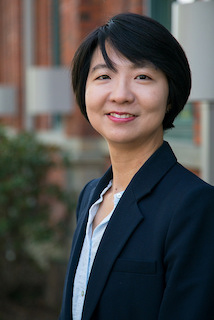
Associate Professor, School of Interdisciplinary Arts & Sciences
Ji-Hyun Ahn, PhD specializes in media globalization, Korean television and popular culture, Asian multiculturalism, and critical mixed-race studies. She is particularly interested in examining how media practices have facilitated the re-imagination of national identity from a global media perspective. Her ultimate goal is to understand how racial projects in what once were racially homogenous countries in Asia, including South Korea, are differently structured and articulated through televisual media in comparison to the West. This research is significant because race has rarely been discussed in the globalization process, especially in Asia, where nationality—rather than race or ethnicity—has been the preferred marker of difference.
Dr. Ahn teaches TGH 302: Global Imaginations (Winter 2026), part of the Global Honors program and Minor in Global Engagement.
Associate Professor, School of Interdisciplinary Arts & Sciences
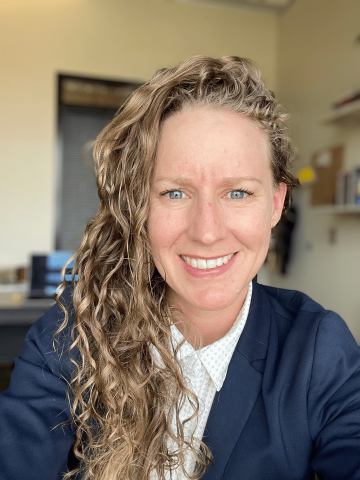
Alison Cardinal, PhD's scholarly expertise lies at the intersection of language justice, technical communication, and content design. In all her work, she is committed to language justice approaches in her scholarship, community-based work, and teaching. Language justice asserts that all people should be able to fully and equitably participate in our communities and access services in their preferred language. Language justice fosters cultural vitality, autonomy, and dignity by allowing people to communicate without being stigmatized. Her work seeks to develop and practice ways of decentering English as the default way of speaking and communicating in our institutions to work towards equity for multilingual communities. Her approach to language justice comes from a technical communication angle. Drawing on approaches from UX (user experience), her work uses a human-centered design approach to create and share knowledge in both scholarly and community spaces.
One of her main area of expertise is in research methods, especially approaches that use participatory research methods. Through these types of approaches, researchers collaborate with research participants to create knowledge and work together to collect and share what they find. Her recent research in this area has focused on the use of participatory video, where participants film their own environments, to research multilingual communities and their language and literacy practices.
Dr. Cardinal teaches TGID 320: Innovation & Design Studio (Spring 2026), part of the Minor in Innovation and Design.
Teaching Professor, School of Interdisciplinary Arts and Sciences
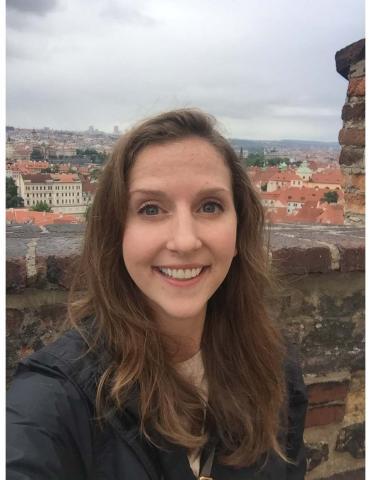
Leighann Chaffee, MA is a teacher-scientist who uses the lens of biopsychology to better understand motivated behaviors and well-being. As a student, her studies in biopsychology focused on neuroscience and behavior, as she studied the biological basis of stress and feeding behavior. She has conducted empirical studies utilizing electrophysiological and behavioral neuroscience methods, in both human and animal models. Her current research in the biopsychology of eating is student-hypothesis driven and emphasizes aspects of food decision-making that are often overlooked in traditional research on health.
Professor Chaffee teaches TGH 304: Global Science (Spring 2026), part of the Global Honors program and Minor in Global Engagement.
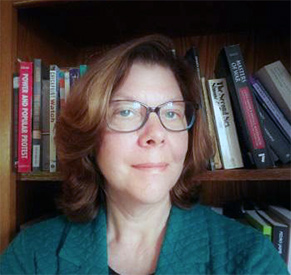
Teaching Professor, School of Interdisciplinary Arts and Sciences
Specialty: International Education, Social Movements, Violence Against Women in Latin America (especially Brazil)
Margaret Griesse, PhD's main areas of research include social movements in Latin America, with a focus on Brazil; transversal and transnational studies on gender; and social responsibility within emerging nations. During the summer, she takes students on a Brazil study abroad program.
Dr. Barnes teaches TGH 301: Global Interactions (Winter 2026), part of the Global Honors program and Minor in Global Engagement.
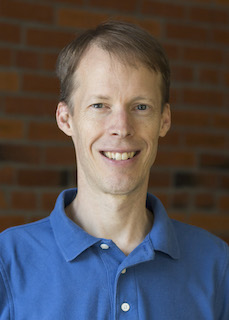
Specialty: Public Policy, Environmental Policy, Community-Based Natural Resources Management, Integration of Social and Environmental Sciences
Tom Koontz, PhD grew up in Kitsap county and completed his bachelor's degree at the University of Puget Sound, before heading east to pursue graduate work at Indiana University in Public Policy. His interdisciplinary graduate studies focused on environmental policy as it relates to human systems including institutions, stakeholder participation and community-based natural resource management, as well as natural systems such as forests, watersheds and the global climate. As a research assistant with the International Forestry Resources and Institutions program, he collaborated with international scholars examining the ecological and sociopolitical aspects of community-based natural resource management and coupled human and natural systems.
In 1998 Dr. Koontz joined the faculty at Ohio State University in the interdisciplinary School of Environment and Natural Resources. Working with colleagues and students, he conducted research on collaborative environmental management, forest policy, watershed management and related environmental and natural resources policy topics. As one of the few social scientists in an environmental science program, he enjoyed helping students to integrate across disciplines and see the critical role of social science in solving environmental challenges.
In 2011 Dr. Koontz spent a half-year sabbatical at Leuphana University in Germany, where he taught and researched in the sustainability program. This provided an opportunity to compare collaboration and water policy between the European Union and the U.S. In 2014 he returned to his home state of Washington to join UW Tacoma in its environmental science, environmental studies, and sustainability efforts.
Dr. Koontz teaches TGH 303: Global Challenges (Autumn 2025), part of the Global Honors program and Minor in Global Engagement.
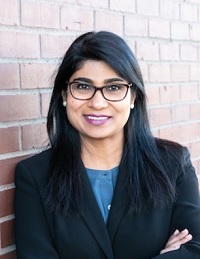
Associate Vice Chancellor, Innovation & Global Engagement
Professor, School of Interdisciplinary Arts & Sciences
Specialties: Global Media Studies, Communication
Dr. Divya McMillin (Ph.D. 1998, Indiana University Bloomington) is Professor of Global Media Studies in the School of Interdisciplinary Arts and Sciences (SIAS) and Associate Vice Chancellor for Innovation and Global Engagement. McMillin has been featured as The Builder and Innovator for founding the SIAS Communication major (2000), the Institute for Global Engagement (2014) with its Minor and certificates in Global Engagement, the Global Innovation and Design (GID) Lab (2018) with its Minor in Innovation and Design, and the Institute for Innovation and Global Engagement (2020). She is Associate Faculty of the South Asia Center and Affiliate Faculty of the Center for Global Studies in the UW Seattle Henry M. Jackson School of International Studies. McMillin’s pivotal work on the impact of satellite television on audiences and the television format industry across the world have led to three critically acclaimed books: International Media Studies (Wiley, 2007), Mediated Identities: Youth, Agency, and Globalization (Peter Lang, 2009), and the anthology Place, Power, Media (Peter Lang, 2018). She is one of only three faculty at UW Tacoma to receive highest honors in both research and teaching, with a Distinguished Research Award (2012) and a Distinguished Teaching Award (2017). Her analyses of global cities and convergence technologies are widely published in top-tiered journals and anthologies, meriting her Top Paper Awards from the International Communication Association.
She has served as Cartus consultant for Russell Investments, Philips, and Siemens, as program consultant for the National Collegiate Honors Council and the American Association of Colleges and Universities, and is a member of various Tacoma community Boards. Trained at Stanford University’s Innovation Masters Series (2019), McMillin has led innovation and design thinking workshops for such corporate, non-profit, and government organizations as Titus Will Tacoma, Zenith West Gymnastics, United Way of Pierce County, the Tacoma Pierce County Chamber of Commerce, South Sound Together, and the City of Tacoma.

Professor, School of Interdisciplinary Arts & Sciences
Specialty: Political Science, International Law, Armed Conflict and Genocide, Rhetorical Strategy
Benjamin Meiches, PhD's research and teaching focus on global politics. He is particularly interested in armed conflict, genocide, and the development of international law. He teach classes about political violence, human rights, and international theory.
Dr. Meiches' research focuses on armed conflict, genocide, and international law. He is particularly interested in how the categories, concepts and practices of contemporary violence evolved and developed over time. I is also invested in debates about contemporary political theory. He is currently working on a history of the emergence of international law and political discourse surrounding genocide.
Dr. Meiches teaches TGH 490: Research Methods Seminar (Autumn 2025) and TGH 491: Thesis Symposium (Spring 2026), part of the Global Honors program and Minor in Global Engagement.
Professor, School of Interdisciplinary Arts & Sciences
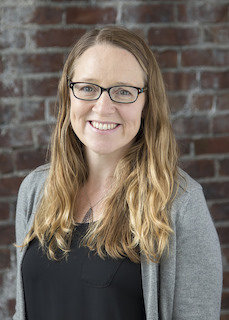
Emma Rose, PhD's research is motivated by a commitment to design for digital inclusion. Designing for information and communication technologies (ICTs) in developing countries and for poor communities in developed countries presents unique challenges. In these settings, people have limited access to a variety of resources which result in challenges in daily life. Constraints in these settings include infrastructure, technology and economics. She investigates how existing methodologies and design approaches can and should be expanded to accommodate the growing diversity of people using technology. Specifically, she focuses on understanding people's needs and practices using methodologies that are contextual and participatory.
Within the field of technical communication, her area of expertise is in usability and user-centered design. Prior to her academic career, she worked as a user experience consultant and web designer where she spent over a decade designing, researching and adapting designs to meet the needs of a variety of users. This experience in industry gives her research and teaching an applied and practical approach.
Dr. Rose teaches TWRT 350: Principles of User Centered Design (Autumn 2025, Winter 2026) and TGID 420: Reflexive Design Portfolio (Spring 2026), part of the Minor in Innovation and Design.
Professor, School of Interdisciplinary Arts & Sciences
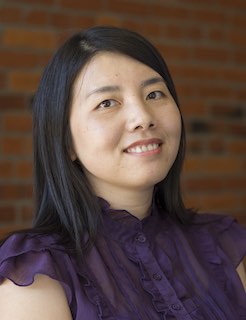
Huatong Sun, PhD explores the relationship and interaction between technology, culture and design in a globalization age across multiple disciplines; a teacher who strives to nurture communication majors into competent professionals and socially responsible citizens with a sharp vision of critical media studies; and a designer who aims to articulate local voices with a culture-sensitive design approach.
Dr. Sun teaches TGID 320: Innovation & Design Studio (Winter 2026), part of the Minor in Innovation and Design.
Selected Research
- Addressing Global HCI Challenges at the Time of Geopolitical Tensions through Planetary Thinking and Indigenous Methodologies (Workshop): INTERACT 2025
- Design as Healing and Transformation: Bridging Cultural Differences with Critical Design (Course): INTERACT 2025
- Reimagining Global Design with Local & Indigenous Problem-Solving (Panel): Human-Computer Interaction International 2025
Professor, School of Urban Studies
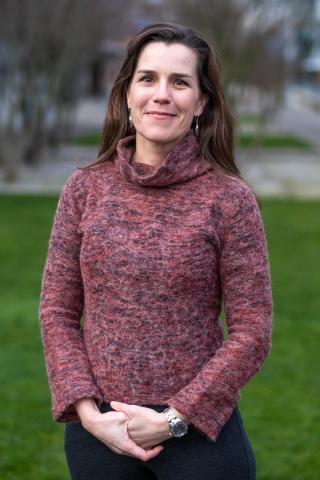
Anne Taufen, PhD is an interdisciplinary policy and planning scholar who specializes in interpretive methodology, applied teaching and research, and regional community development. Her published research focuses on equitable governance, port city infrastructures, and the social-ecological networks of urban regions.
Dr. Taufen teaches in the Urban Studies, Sustainable Urban Development (SUD), and Global Honors (GH) undergraduate programs; and in the Community Planning (MACP) graduate program. Her teaching connects governance and development concepts to evidence and experience from local sites and empirical case material, utilizing a variety of pedagogical strategies to develop student competencies in comprehension, analysis, comparative work, communication, and strategic action.
Dr. Taufen teaches TGH 203: Themes in Global Honors (Spring 2026), part of the Global Honors program and Minor in Global Engagement.





